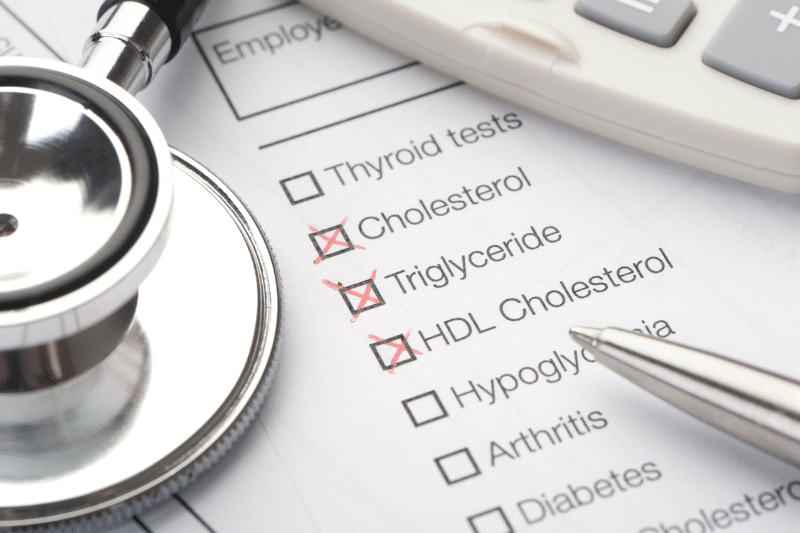Hiatal stomach hernia is a condition that occurs when part of the stomach bulges through the diaphragm into the chest cavity. Furthermore, it affects millions of people worldwide, leading to discomfort and digestive issues.
According to NIH study, in the United States, approxiately 50% to 60% of adults aged 50 and older have a hiatal hernia.
Hiatal Stomach Hernia – Types and Stages
A hiatal hernia occurs when a portion of the stomach pushes upward through the hiatus. Particularly, an opening in the diaphragm that allows the esophagus to pass through. This can lead to symptoms such as heartburn, acid reflux, and discomfort, especially after eating.
Moreover, the diaphragm is a muscle that separates the chest cavity from the abdomen, playing a key role in breathing. The most rolling hiatal hernia can either partially or completely push the stomach into the chest That can further lead to various uncomfortable symptoms.
Types of Hiatal Hernias
There are two main types of hiatal hernias:
Sliding Hiatal Hernias
Sliding hiatal hernias are the most common type, where the stomach and a part of the esophagus slide in and out of the chest through the diaphragm.
Paraesophageal Hernias
Paraesophageal hernias are less common but more serious form, where part of the stomach pushes through the diaphragm and stays there, which can lead to strangulation or restricted blood flow to the stomach.
Stages of Hiatal Hernia
Hiatal hernias can be classified based on their severity. In the early stages, a hernia may not present symptoms or may only cause mild discomfort. Over time, the condition can progress, leading to more severe symptoms and complications. The stages include:
Stage 1
The stomach remains in the abdomen, but the esophagus and stomach slide around up and down through the hiatus.
Stage 2
A larger portion of the stomach enters the chest cavity.
Stage 3
Most of the stomach is now above the diaphragm and abdominal organ.
Stage 4
In this stage, other abdominal organs may also move into the chest cavity alongside the stomach.

Hiatal Stomach Hernia – Causes, and Aggravating Factors
Several factors can lead to the development of a hiatal hernia. Common causes include:
Weakened Diaphragm Muscles
This is more common as we age, making it easier for part of the stomach to push through the hiatus.
Increased Pressure in the Abdomen
Factors like obesity, pregnancy, and chronic coughing can all increase abdominal pressure, leading to a hernia.
Injury to the Diaphragm
Trauma to the area can weaken the top opening in your diaphragm, creating a pathway for the stomach to move upward.
Congenital Factors
Some people are born with a larger-than-normal hiatus, making them more prone to hernias.
What Aggravates a Hiatal Hernia?
Several factors can worsen the symptoms of a hiatal hernia, including:
Overeating
Consuming large meals can put pressure on the stomach and exacerbate symptoms like heartburn and acid reflux.
Lying Down Immediately After Eating
This can cause stomach acid to flow back into the esophagus, increasing discomfort.
Bending Over or Heavy Lifting
Activities that increase intra-abdominal pressure can aggravate a hernia.
Smoking
Smoking weakens the lower esophageal sphincter (LES), the muscle that controls the passage between the esophagus and the stomach. When the LES is weakened, it becomes easier for stomach acid to flow back into the esophagus, leading to acid reflux and conditions like GERD (gastroesophageal reflux disease). Additionally, smoking can irritate the esophagus and reduce saliva production, which helps neutralize stomach acid.
Can Stress Aggravate a Hiatal Hernia?
Yes, stress can play a role in worsening hiatal hernia symptoms. Stress triggers the release of stomach acid, which can irritate the esophagus and exacerbate symptoms like heartburn and acid reflux. Additionally, stress can lead to poor eating habits, such as overeating or consuming spicy or acidic foods often, which further aggravates the condition.
Does Weight Gain Affect a Hiatal Hernia?
Weight gain, especially in the abdominal area, can increase pressure on the diaphragm and the stomach. This pressure can worsen the symptoms of a hiatal hernia or cause the hernia to grow larger. Losing weight is one of the most effective ways to reduce the pressure on the hiatal hernia repair and alleviate symptoms.

Hiatal Stomach Hernia – Symptoms
For many individuals, a hiatal hernia doesn’t cause any noticeable symptoms. However, when symptoms do occur, they are often similar to those of acid reflux or gastroesophageal reflux disease (GERD), as the hernia can interfere with the stomach’s ability to keep acid in the stomach. Common symptoms include:
Heartburn
A burning sensation in the chest, often after eating or when lying down.
Regurgitation of Food or Stomach Acid
Food or acid may come back up into the esophagus, leading to an unpleasant taste.
Difficulty Swallowing (Dysphagia)
The pressure on the esophagus can make swallowing difficult.
Chest Pain
Often mistaken for heart-related pain, this is usually caused by acid reflux.
Shortness of Breath
Pressure on the diaphragm or lungs from the hernia can lead to difficulty breathing.
Feeling Full Quickly
The presence of the hernia can reduce the stomach’s ability to expand, making you feel full after small meals.
What Are the Worst Symptoms of a Hiatal Hernia?
While mild symptoms can be annoying, the more serious symptoms or severe symptoms may indicate complications that require medical attention. If you experience any of the following, then it’s crucial to see a doctor immediately:
-
Severe chest pain.
-
Difficulty breathing.
-
Vomiting blood or black stools (which may indicate gastrointestinal bleeding).
-
Strangulated hernia, is a medical emergency where the stomach becomes trapped, cutting off its blood supply.
Can You Have a Hiatal Hernia Without Symptoms?
Yes, it’s possible to have a silent hiatal hernia, meaning you don’t experience any symptoms. These cases are often discovered incidentally during tests for other conditions. Asymptomatic hiatal hernias usually don’t require treatment but should be monitored.
What Are the Worst Symptoms?
Severe chest and abdominal pain, shortness of breath, and difficulty swallowing are some of the most distressing symptoms. In addition, if a paraesophageal hernia is present, it may lead to life-threatening complications like strangulation of the stomach.
How Do You Know If You Have a Hernia in Your Diaphragm?
Doctors typically diagnose a hiatal hernia through imaging tests such as a barium swallow, endoscopy, or X-ray. Moreover, these tests can show the size and position of the hiatal hernia diagnosis itself.
Can a Hiatal Hernia Cause Chest Pain?
Yes, chest pain is a common symptom of a hiatal hernia. It’s often mistaken for heart-related pain, but it’s usually caused by acid reflux or pressure on the diaphragm.
Can Hiatal Hernia Cause Shortness of Breath?
Shortness of breath can occur because the hernia presses on the diaphragm and lungs, limiting breathing capacity.
According to NIH report, Approximately 50% of people with GERD also have a hiatal hernia.

Diagnosis and Hiatal Hernia Surgery
How Do Doctors Diagnose a Hiatal Hernia?
If your doctor suspects a hiatal hernia, they may use several tests to confirm the diagnosis:
Barium Swallow
A test where you swallow a contrast liquid that shows up on X-rays, allowing doctors to see the shape of your esophagus and stomach.
Endoscopy
This procedure involves passing a flexible tube with a camera, down your throat to visualize the inside of the esophagus and part of your stomach. It is commonly used to diagnose conditions like GERD, hiatal hernias, ulcers, and esophagitis. The endoscope allows the doctor to view detailed images and, if necessary, take tissue samples (biopsies) for further analysis.
Esophageal Manometry
A test that measures the pressure in your esophagus, helping to further determine whether it’s functioning properly.
X-rays
Imaging studies may help reveal a hernia if it’s large enough.
What Is the Best Treatment for a Hiatal Hernia?
Regardless, the treatment for a hiatal hernia depends on the severity of the symptoms. For mild cases, lifestyle changes and medication are often sufficient. Although more severe cases may require surgery.
How Do You Fix a Hiatal Hernia?
Treatment options include:
Lifestyle Changes
Making certain adjustments can alleviate symptoms, such as:
-
Eating smaller meals.
-
Avoid lying down right after eating.
-
Elevating the head of your bed.
-
Avoiding trigger foods like spicy, acidic, or fatty foods.
Medications
Medications commonly used to treat a hiatal hernia include:
-
Antacids to neutralize stomach acid.
-
H2 blockers and proton pump inhibitors (PPIs) to reduce acid production.
-
Prokinetics helps the stomach empty more quickly and reduces the amount of acid reflux.
Surgery
In severe cases, surgical repair may be necessary. The most common surgical procedure is Nissen fundoplication, where the upper part of the stomach is wrapped around the lower esophagus to prevent reflux.
Are There Non-Surgical Treatments?
Yes, many people manage their back hiatal hernia pain with non-surgical treatments, including:
-
Weight management.
-
Sleeping with the head elevated.
-
Medications (to reduce stomach acid).
-
Dietary changes (avoiding acidic, spicy, and fatty foods).
Is Surgery the Only Option for Treating a Hiatal Hernia?
Surgery is usually the last option, reserved for severe cases. In fact, laparoscopic surgery is a common, very minimally invasive surgery procedure with a high success rate.

Hiatal Stomach Hernia – Prognosis and Recovery
Can a Hiatal Hernia Go Away on Its Own?
No, a hiatal hernia does not heal without intervention. However, symptoms can be managed effectively with proper treatment.
How Long Does It Take to Recover from Hiatal Hernia Surgery?
Recovery typically takes 2-4 weeks, but patients should avoid heavy lifting or straining for several months after hernia surgery. Most people can return to normal activities within a few weeks.
What Are the Chances of a Hiatal Hernia Recurring After Treatment?
While surgery has a high success rate, hernias can recur, particularly if the underlying risk factors like obesity or chronic coughing are not addressed.

Hiatal Stomach Hernia – Advanced Considerations
What Are the Risks and Complications Associated with the Surgery?
Complications from surgery are rare but can include:
-
Infection.
-
Bleeding.
-
Recurrence of the Hernia.
-
Difficulty Swallowing (Dysphagia).
How Does Hiatal Hernia Surgery Compare with Other Treatments?
Surgery is a last resort, typically recommended when non-surgical methods fail. It is effective in reducing symptoms and preventing complications, but it involves risks and a recovery period. Non-surgical treatments, including lifestyle modifications and medications, are generally preferred for managing mild to moderate cases.
Can Hiatal Hernia Lead to Other Digestive Problems?
Yes, hiatal hernias are closely linked with GERD, which can lead to additional complications such as esophagitis (inflammation of the esophagus), Barrett’s esophagus (pre-cancerous changes in the esophagus), or even esophageal cancer in severe cases.
How Does Hiatal Hernia Affect GERD (Gastroesophageal Reflux Disease)?
Conversely, a hiatal hernia can worsen GERD by allowing stomach acid to escape into the esophagus more easily. Consequently, the hiatal hernia disrupts the normal function of the lower esophageal sphincter. Not only makes it easier for acid to reflux but also causes symptoms such as heartburn and regurgitation.
Besides this, hiatal hernias are a common condition that can cause a range of symptoms from mild discomfort to severe pain. Understanding the causes, symptoms, as well as treatment options is crucial for managing this condition effectively.

Hiatal Stomach Hernia FAQs
What’s the Difference Between a Hiatus and a Hiatal Hernia?
A hiatus is a normal opening in the diaphragm through which the esophagus passes. A hiatal hernia occurs when a portion of the stomach pushes upward through the hiatus, an opening in the diaphragm, and into the chest cavity.
What Is Herniation of the Stomach Called?
Herniation occurs when the stomach protrudes into the chest cavity through the diaphragm. This condition happens when a portion of the stomach pushes upward through the hiatus, an opening in the diaphragm, allowing it to enter the chest area.
How Serious is a Hiatal Hernia?
For most individuals, a hiatal hernia isn’t immediately life-threatening. However, if left untreated, it can lead to complications such as gastroesophageal reflux disease (GERD), or in rare cases, stomach strangulation.
What Does a Herniated Stomach Look Like?
In a hiatal hernia, part of the stomach bulges upward through the diaphragm. Subsequently, this can create a visible swelling or cause discomfort in the chest or upper abdomen.
Can You Live a Long Life with a Hiatal Hernia?
Yes, most people with a hiatal hernia live full, normal lives. Similarly, many cases do not require surgery and can be managed with lifestyle changes and medication. However, the surgery is usually reserved for severe cases.
What Causes a Hiatal Hernia to Develop?
Hiatal hernias are often caused by weakened diaphragm muscles. Nevertheless, factors that contribute include aging, obesity, chronic coughing, and straining during bowel movements. Additionally, genetic predisposition plays a role.
Lastly, if experiencing symptoms of a hiatal hernia or have concerns about digestive health, it’s essential to consult with a healthcare professional. Furthermore, they can provide a proper diagnosis and recommend the most appropriate treatment based on individual needs.










